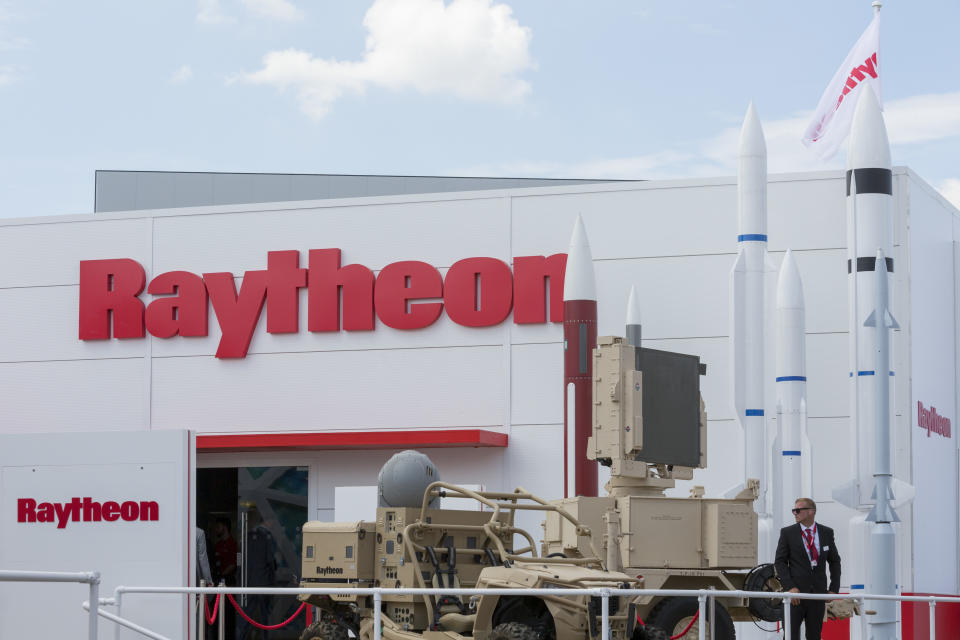The Raytheon-United Technologies merger is a sign of more defense deals to come
The merger of Raytheon Co. (RTN) and United Technologies Corp. (UTX) is a sign that consolidation in the defense industry isn’t over.
In just the past year, United Technologies bought Rockwell Collins for $30 billion, Northrop Grumman announced it would buy Orbital ATK in a $9.2 billion deal, and military defense companies Harris and L3 agreed to merge in a deal worth $33.5 billion.
“This [Raytheon-United Technologies merger] is clearly the biggest, and I don’t see any others of this scale,” Argus Research CEO John Eade told Yahoo Finance’s The First Trade. “I don’t think Northrop Grumman (NOC) or General Dynamics (GD) or Boeing (BA) or Lockheed (LMT) are going to combine in anyway.
“But that second and third tier down, I think you may well see more M&A activity,” he said.
The newly announced tie-up could pressure contractors to cut costs and put pressure on its peers to keep up, Eade said. It would also make the combined company better equipped to weather a possible slowdown in military spending, something analysts have been predicting.
Eade had a price target of $200 on Raytheon and $155 for United Technologies, suggesting both companies offer value to investors.
“We think there’s some room to run with United Technologies,” says Eade. “So in the short run, Raytheon has the better return, but in the long run, we think it’s the combined company that’s going to do well.”

“Merger of equals”
The combined company, to be called Raytheon Technologies Corp., would have an estimated $74 billion in annual sales and become the second-largest aerospace and defense company in the U.S. behind Boeing.
The “merger of equals,” as the companies describe it, would allow Raytheon to expand into commercial aviation while reducing United Technologies’ dependence on aerospace.
The marriage between a leading aerospace business and a giant government defense contractor also has the potential to rattle suppliers, customers and competitors.
"While the synergies may be less apparent than in recent deals there is some truth to the idea that bigger is better. With common customers there is leverage to size and the supply chain," Jefferies analyst Sheila Kahyaoglu said in a note.
President Trump has “concerns”
President Donald Trump weighed in on the historic deal.
“I’m a little concerned about United Technologies and Raytheon,” Trump said in an interview with CNBC. Aerospace companies have “all merged in so it’s hard to negotiate” with them.
When asked whether he would have problems with the merger Trump said, “Only if they have the same products. That would be the thing that bothers me most.”
But that doesn’t seem to be the case.
“I don’t see government clearance as a hurdle for this deal,” Eade said.
“There’s not a lot of overlap here between these two companies. United Technologies doesn’t have the defense business that Raytheon has,” he added. “Raytheon had over 75% of its revenue coming from the Department of Defense, compared to about 25% for United Technologies.”
—
Alexis Christoforous is co-anchor of Yahoo Finance’s “The First Trade.” Follow her on Twitter @AlexisTVNews.
Read the latest financial and business news from Yahoo Finance
Follow Yahoo Finance on Twitter, Facebook, Instagram, Flipboard, LinkedIn, YouTube, and reddit.